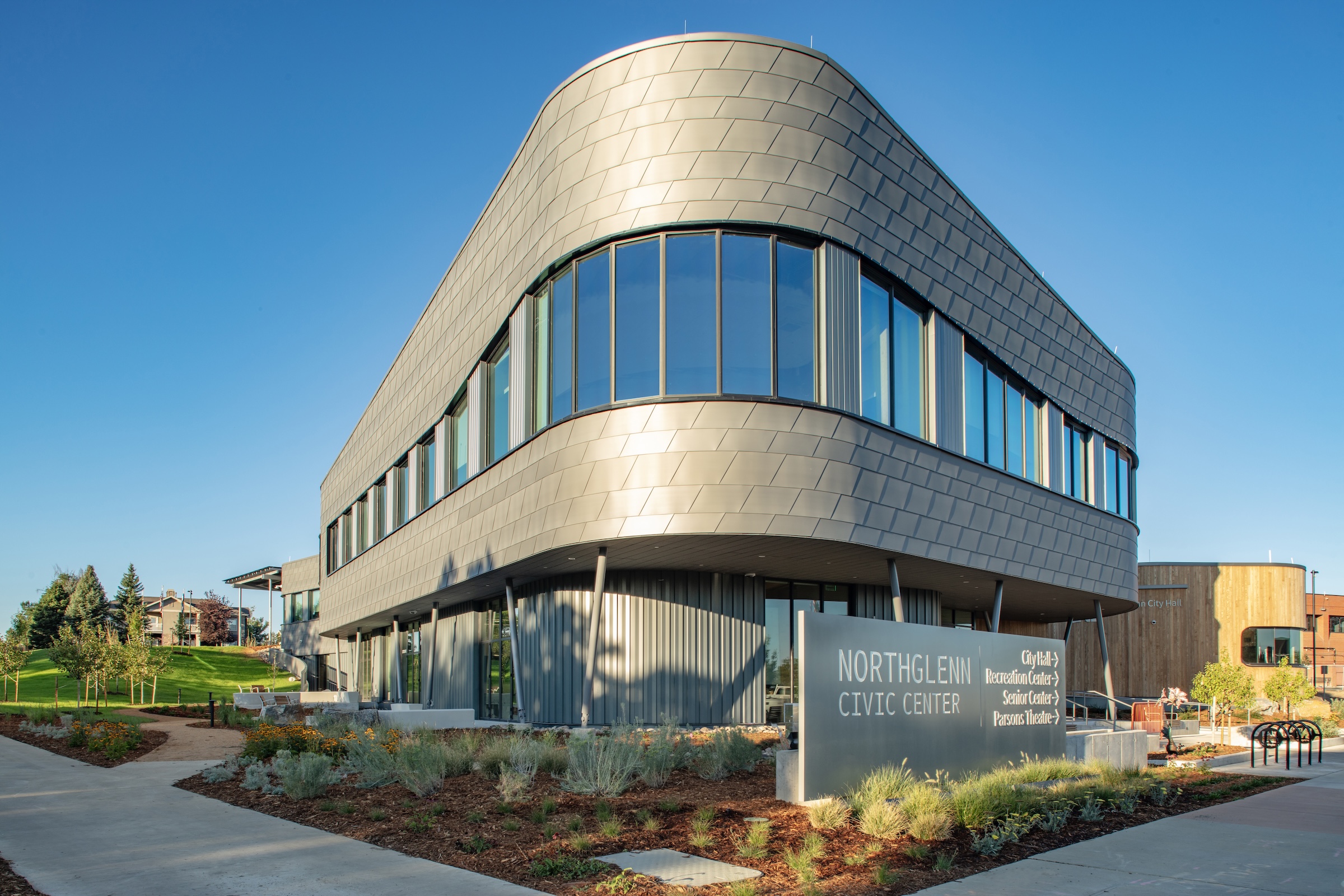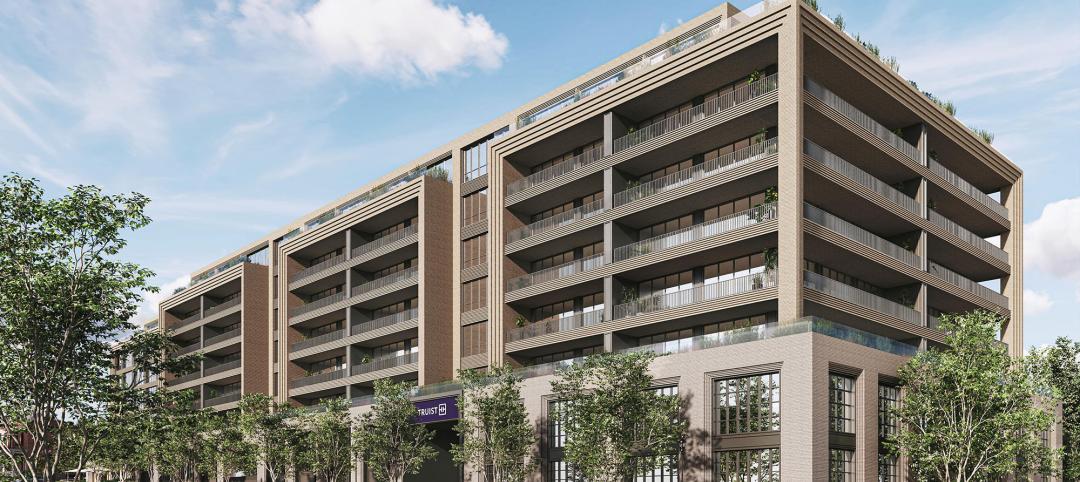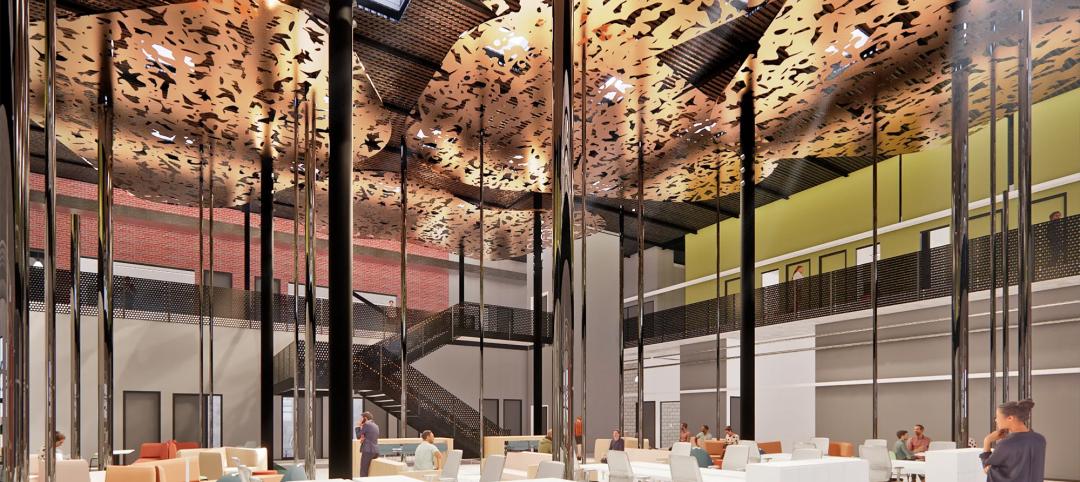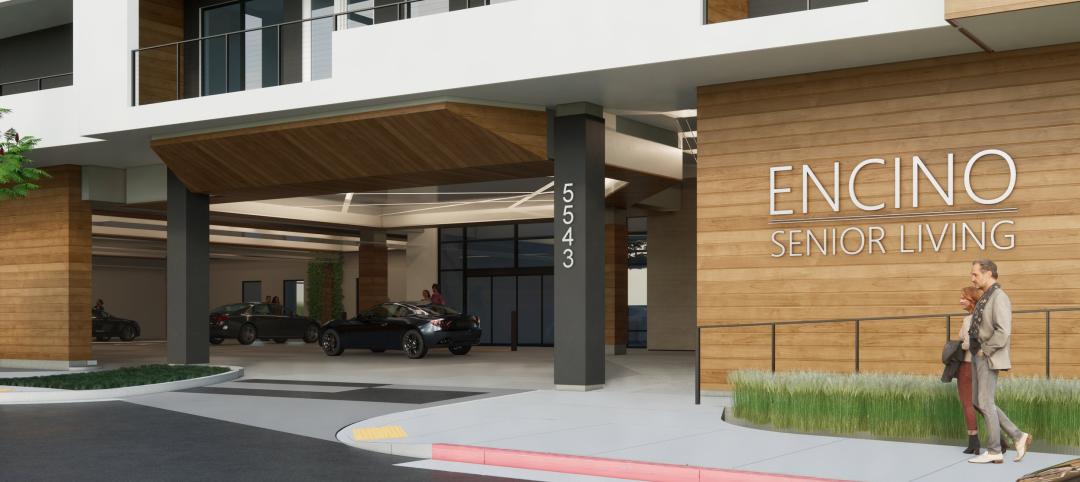Northglenn, Colo., a Denver suburb, has opened the new Northglenn City Hall—a net zero, fully electric building with a mass timber structure. The 32,600-sf, $33.7 million building houses 60 city staffers.
Designed by Anderson Mason Dale Architects, Northglenn City Hall is set to become the first municipal building in Colorado, and one of the first in the country, to achieve the Core certification: a green building rating system overseen by the International Living Future Institute.
The project boasts numerous sustainability features. Running entirely on electricity, Northglenn City Hall features 476 solar panels that are expected to generate at least as much energy as the building consumes annually. There are nine EV-charging stations, with eight more future-ready spots.
While the building’s timber structure reduces embodied carbon by 41%, about one-fifth of the building materials were sourced within 310 miles, helping to reduce CO2 emissions from transportation and shipping. In addition, 80% of construction waste was diverted from landfill.
As a result of the project’s emphasis on biophilic design, four-fifths of occupants have views of the outdoors and daylighting. Native plants reduce water use by over 70% compared to traditional landscaping, and the irrigation relies completely on non-potable water collected from rain and snow.
The project team deployed universal design principles to ensure individuals of all abilities feel comfortable and welcome in City Hall. The team also prioritized products with Declare labels, which Living Future describes as “a nutrition label for building products” that helps identify healthy materials and avoid harmful chemicals.
Northglenn City Hall’s community rooms can be reserved for public use, and its entry lobby, which showcases public art installations, can serve as a pre-function space for community events.
On the building team:
Design architect and architect of record: Anderson Mason Dale Architects
MEP engineer: The Ballard Group
Structural engineer: KL&A Engineers & Builders
General contractor: FCI Constructors
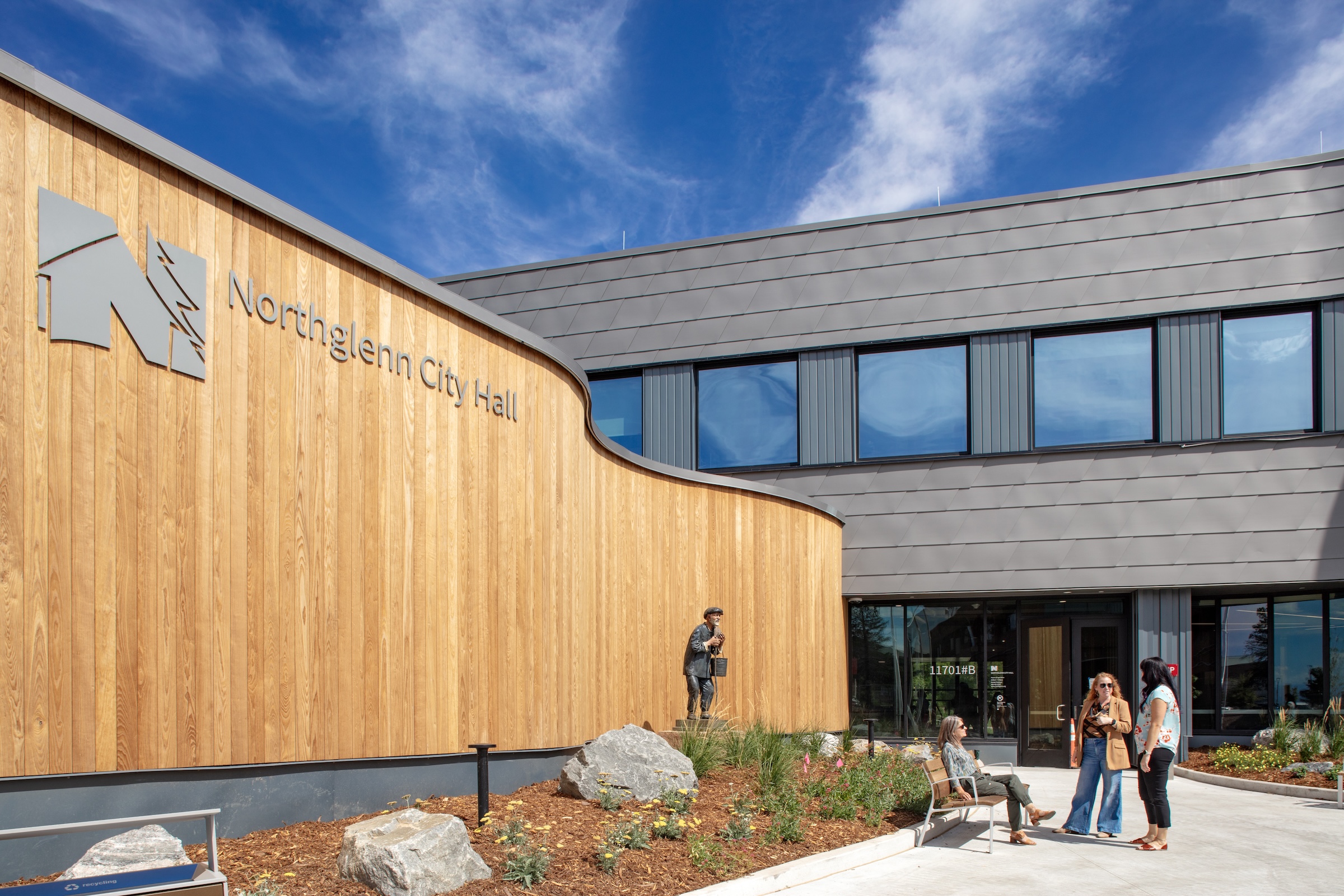
Here are additional facts about Northglenn City Hall:
- First CORE Certification: The building is set to become the first CORE-certified municipal building in the State and one of the first in the country.
- CORE Certification: Overseen by the International Living Future Institute, CORE is a green building rating system similar in ambition to LEED Platinum but emphasizes actual building performance over a checklist approach.
- Sustainable Materials: 20% of materials were sourced within 310 miles. The farthest-traveled material is the All-Wood Mass Timber Structure, from Quebec, Canada, saving 50% in embodied carbon.
- Material Transparency: Many products used “declare labels,” showing they are free from harmful chemicals.
- Embodied Carbon Savings: The carbon savings is equivalent to the carbon of 621 acres of forest for a year, or about 30 Northglenn Civic Center Campuses.
- Solar Power: The building features 476 solar panels generating 195 KW annually.
- Net-Zero Energy: It runs entirely on electricity with no natural gas, and the solar panels are expected to produce as much or more energy than the building consumes annually.
- High Efficiency: The exterior is highly efficient, with double-paned low-e coated glass and an R-Value of R-20.
- Sustainable Materials: The exterior uses Zinc and Thermally Modified Wood, which are natural, durable, and processed without harmful chemicals.
- Zero Fertilizers/Pesticides: The landscaping uses no petrochemical fertilizers or pesticides.
- EV Charging: Nine EV charging stations are installed with eight additional future-ready spots.
- Non-Potable Water: Irrigation uses 100% non-potable water collected from rain and snow.
- Water-Efficient Landscaping: Native and xeric plants reduce water use by over 70% compared to traditional landscapes.
- Nature Integration: The design incorporates natural elements to improve wellbeing, reflecting research on the health benefits of exposure to nature.
- Funding: The $33.7M for City Hall was in-hand before construction. The funding was generated by the .5% sales tax and the 4% Special Marijuana Tax, both of which can only be used for capital projects.
- City Services: The 60 city staff in the building provide services such as utility billing, permits and passports. Departments housed in City Hall include City Council, City Manager, City Clerk, Finance, Planning, Building, Economic Development, Human Resources, Parks/Rec/Culture Administration and Communications (which includes events and engagement).
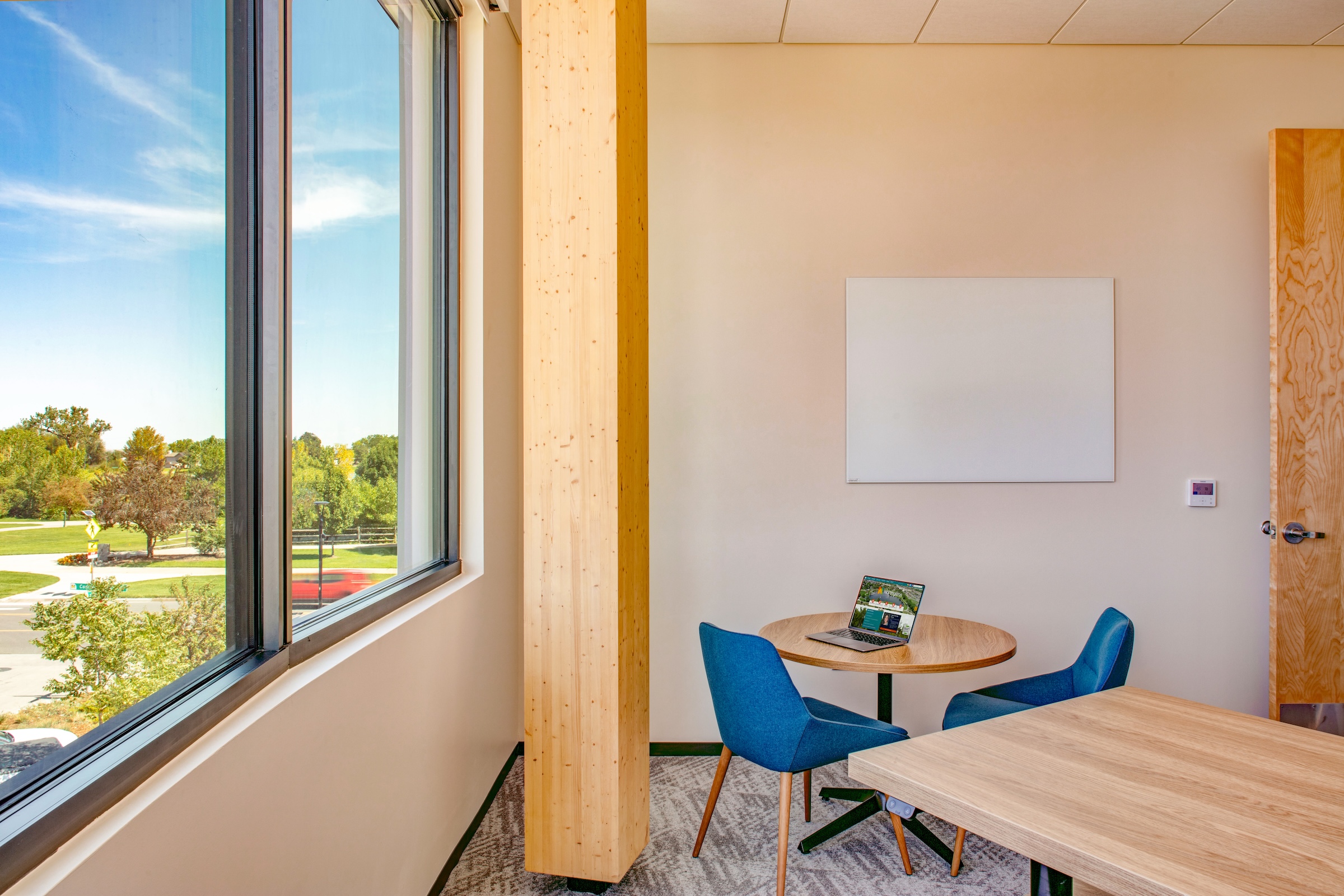
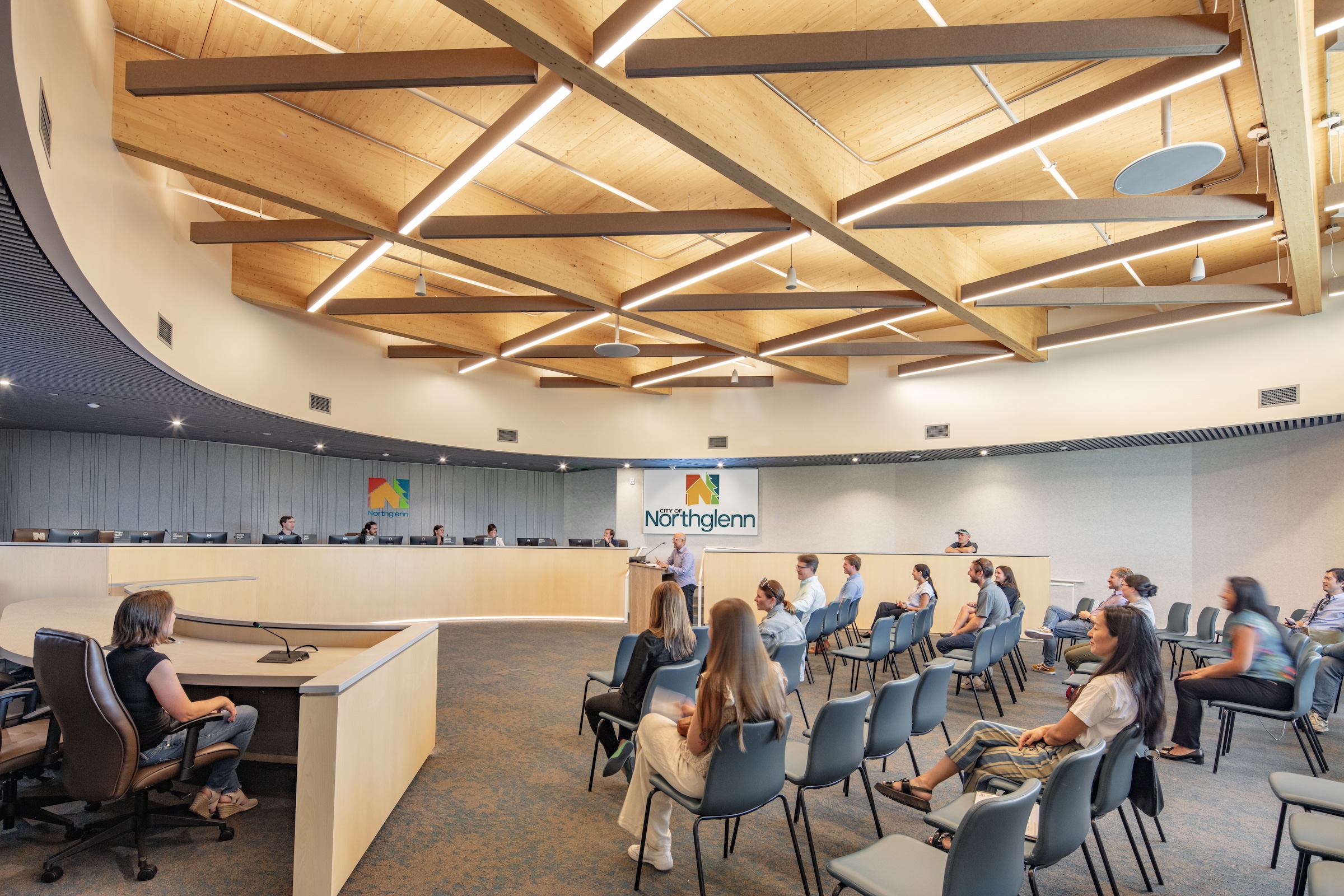
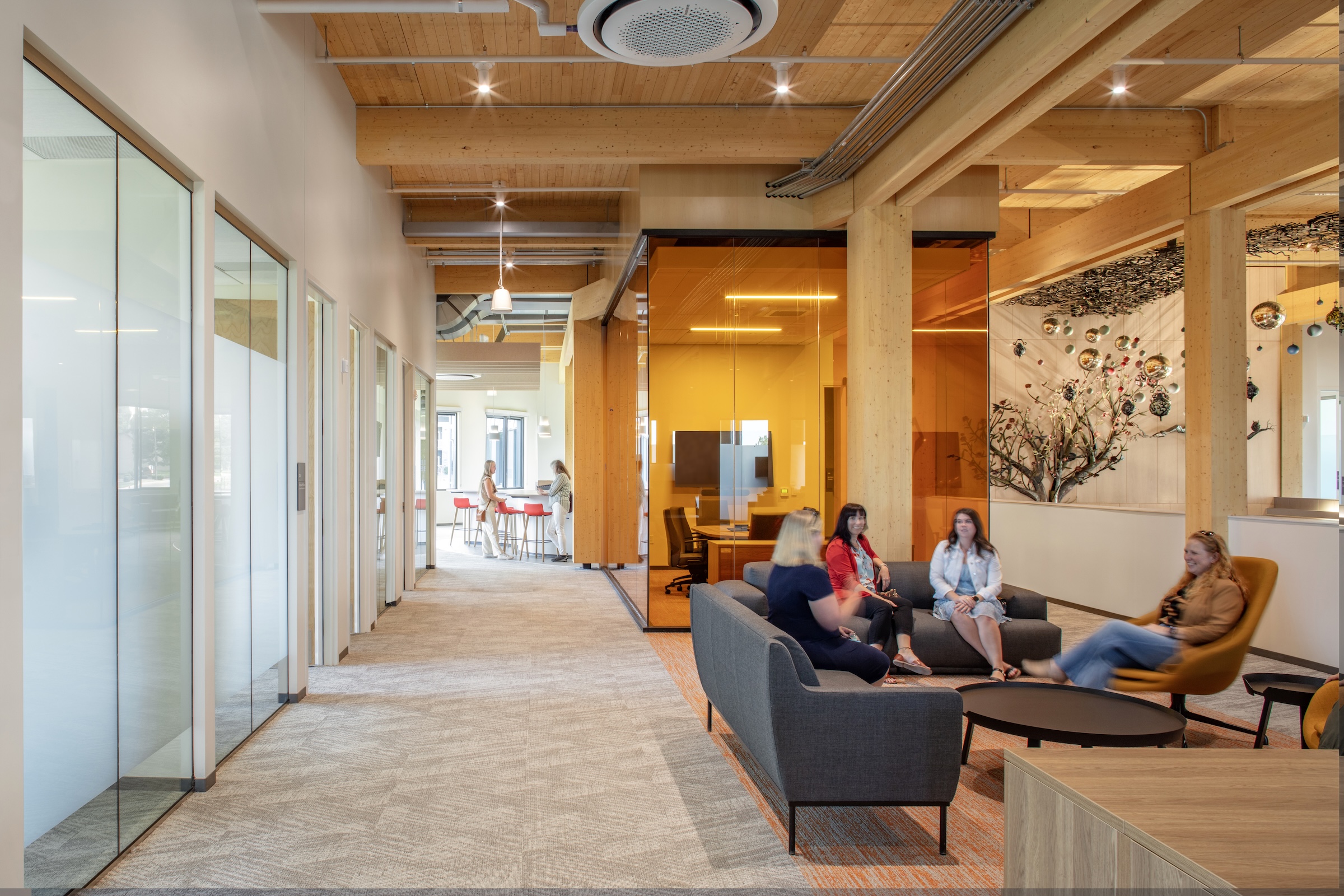
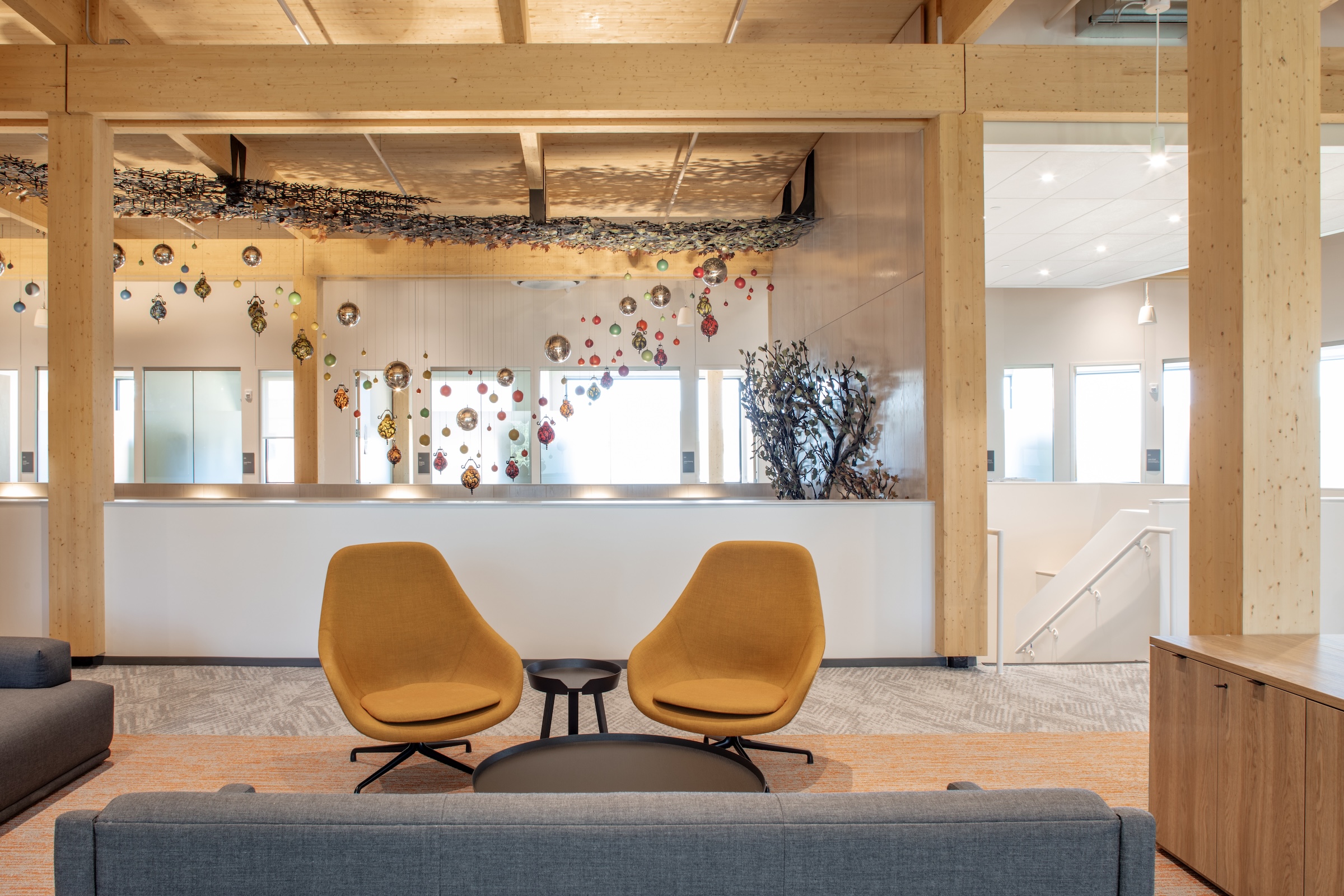
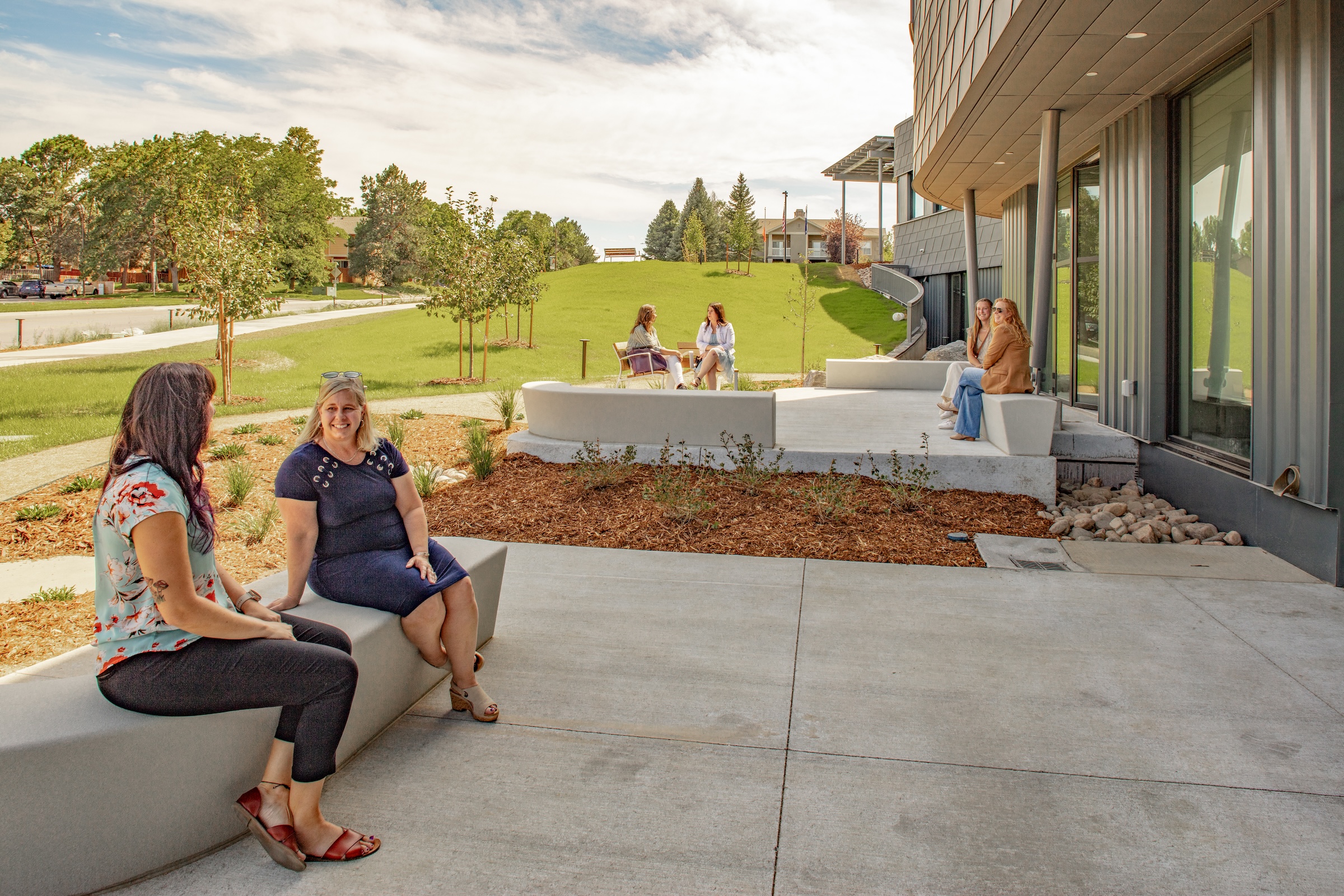
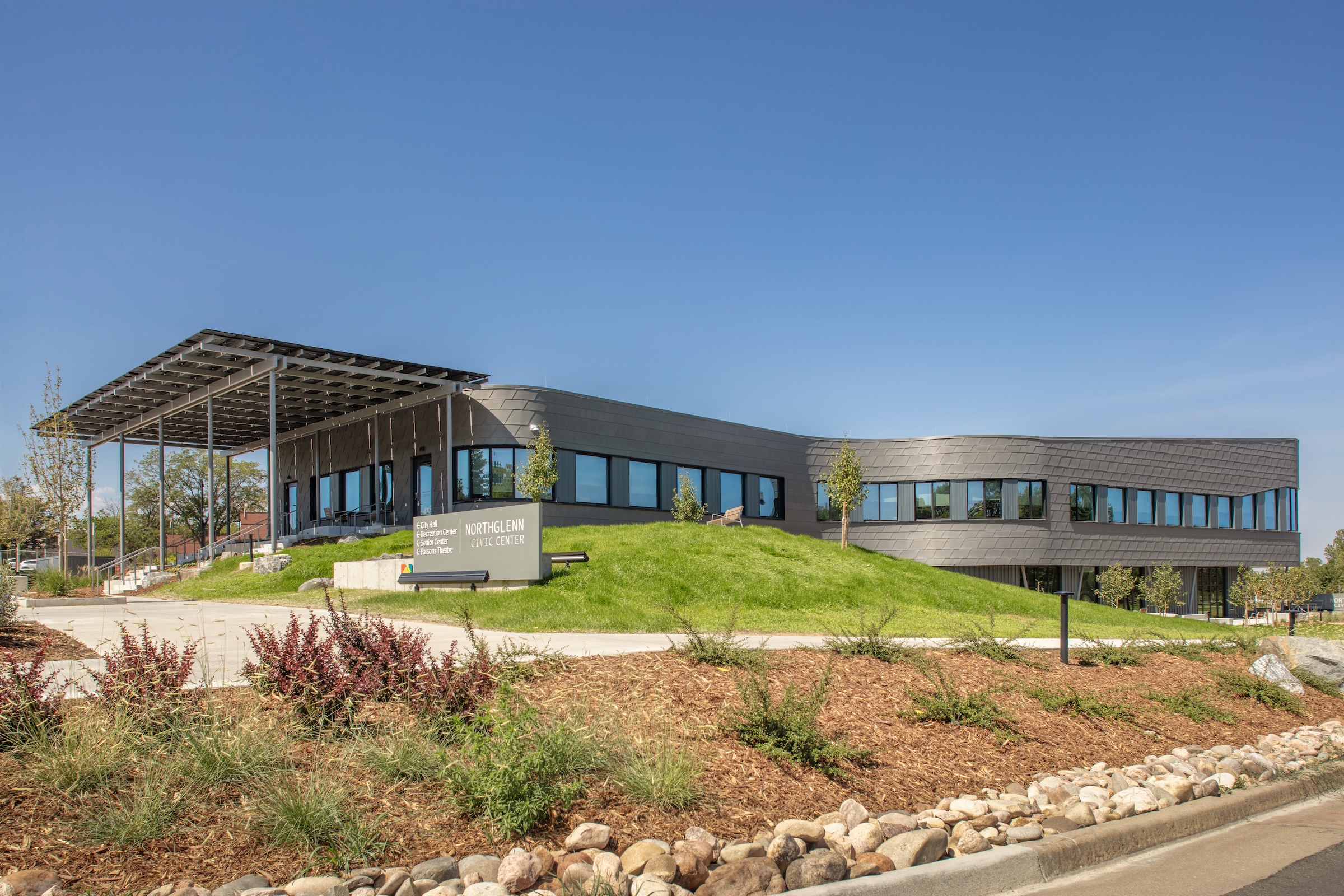
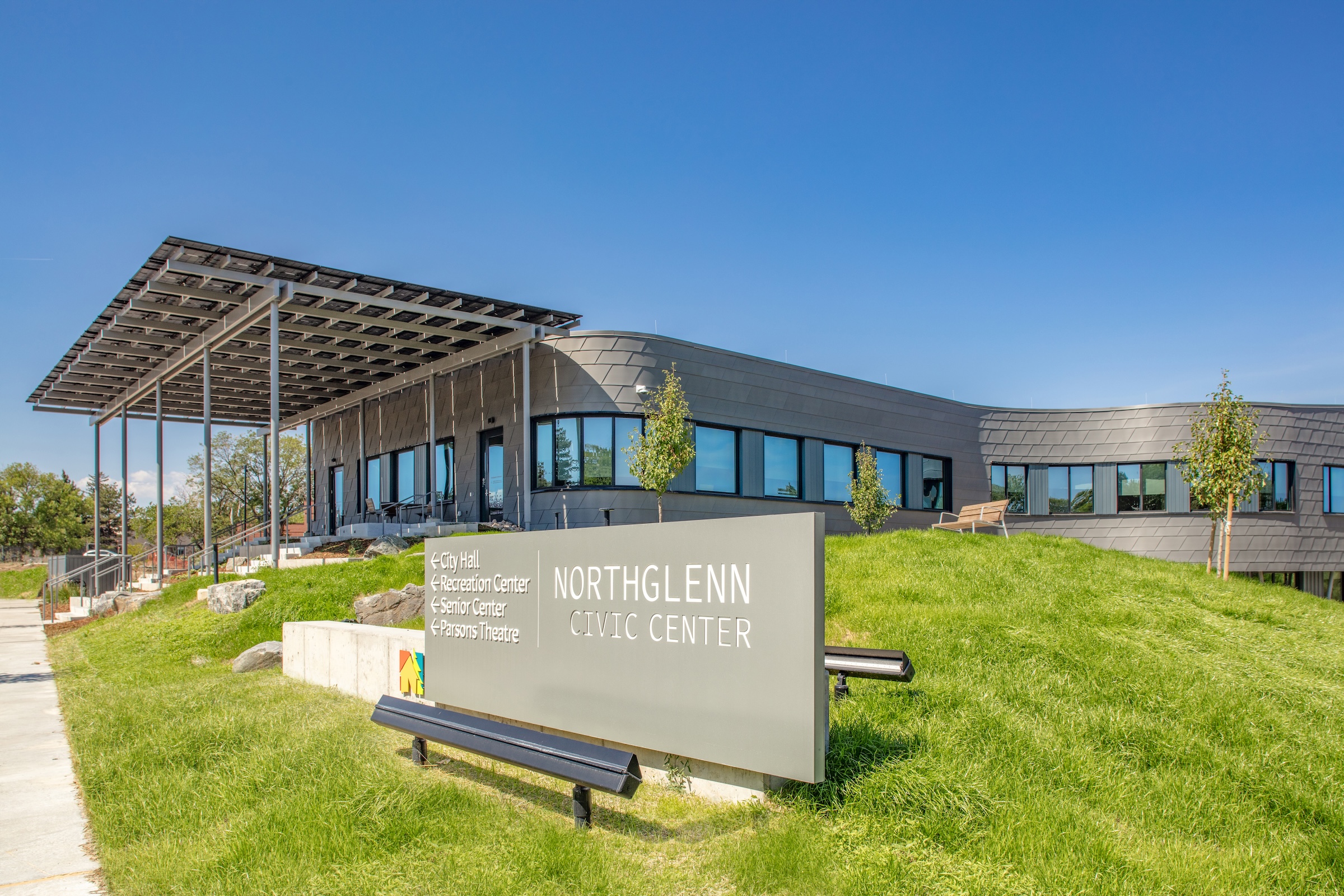
Related Stories
Condominiums | Nov 6, 2023
Douglas Elliman launches its first Metro D.C. condominium project
Douglas Elliman, one of the largest independent residential real estate brokerages in the United States, announced last week that the firm will be handling the sales and marketing for Ten501 at City Centre West.
Sustainability | Nov 1, 2023
Tool identifies financial incentives for decarbonizing heavy industry, transportation projects
Rocky Mountain Institute (RMI) has released a tool to identify financial incentives to help developers, industrial companies, and investors find financial incentives for heavy industry and transport projects.
Government Buildings | Oct 23, 2023
Former munitions plant reimagined as net-zero federal workplace
The General Services Administration (GSA) has embraced adaptive reuse with Building 48, an exciting workplace project that sets new precedents for how the federal government will approach sustainable design.
Biophilic Design | Oct 4, 2023
Transforming the entry experience with biophilic design
Vessel Architecture & Design's Cassandra Wallace, AIA, NCARB, explores how incorporating biophilic design elements and dynamic lighting can transform a seemingly cavernous entry space into a warm and inviting focal point.
Hotel Facilities | Sep 15, 2023
The next phase of sustainability in luxury hotels
The luxury hotel market has seen an increase in green-minded guests looking for opportunities to support businesses that are conscientious of the environment.
Resiliency | Sep 11, 2023
FEMA names first communities for targeted assistance on hazards resilience
FEMA recently unveiled the initial designation of 483 census tracts that will be eligible for increased federal support to boost resilience to natural hazards and extreme weather. The action was the result of bipartisan legislation, the Community Disaster Resilience Zones Act of 2022. The law aims to help localities most at risk from the impacts of climate change to build resilience to natural hazards.
Mass Timber | Sep 1, 2023
Community-driven library project brings CLT to La Conner, Wash.
The project, designed by Seattle-based architecture firm BuildingWork, was conceived with the history and culture of the local Swinomish Indian Tribal Community in mind.
Office Buildings | Aug 31, 2023
About 11% of U.S. office buildings could be suitable for green office-to-residential conversions
A National Bureau of Economic Research working paper from researchers at New York University and Columbia Business School indicates that about 11% of U.S. office buildings may be suitable for conversion to green multifamily properties.
Multifamily Housing | Aug 23, 2023
Constructing multifamily housing buildings to Passive House standards can be done at cost parity
All-electric multi-family Passive House projects can be built at the same cost or close to the same cost as conventionally designed buildings, according to a report by the Passive House Network. The report included a survey of 45 multi-family Passive House buildings in New York and Massachusetts in recent years.
Regulations | Aug 23, 2023
Gas industry drops legal challenge to heat pump requirement in Washington building code
Gas and construction industry groups recently moved to dismiss a lawsuit they had filed to block new Washington state building codes that require heat pumps in new residential and commercial construction. The lawsuit contended that the codes harm the industry groups’ business, interfere with consumer energy choice, and don’t comply with federal law.


